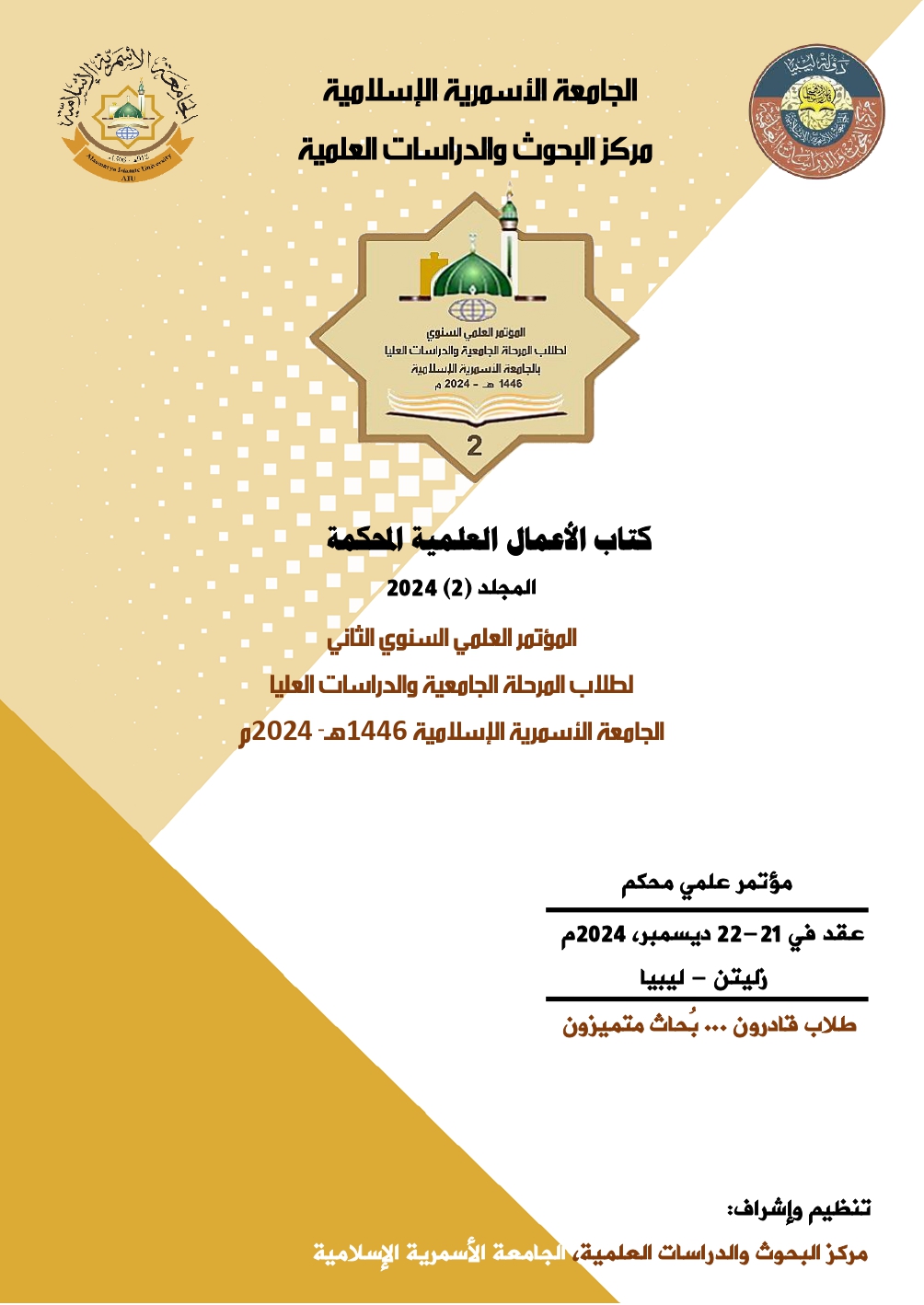The Challenges Faced by International Students in Learning English at Al-Madinah International School, Zliten, Libya
Keywords:
International Students, Learning English, Al-Madinah International SchoolAbstract
The international school helps international students learn English and improves their language level. This study aims to help the students improve their English language and face the difficulties that prevent them from learning it. However, it has been shown that the International School suffers from a lack of strategies and modern methods in teaching the English language. This research used qualitative and quantitative methods, and it included 12 students from grades five, six, seven, and eight, as well as four teachers in the International School. Therefore, the results have shown that the majority of the students and some teachers declare that the school lacks modern strategies for teaching the English language. The researchers recommended that the students should develop their language by themselves and also recommend that the school improve the educational process in all aspects of teaching by using modern strategies and methods.
Downloads
References
Abdulkhay, A. (2021). Understanding the needs and preferences of students in English language education. International Journal of Language Education and Applied Linguistics, 8(1), 12-25.
Ahmed Sheikh, M. (2016). The primary goal of studying any language is to acquire a basic language for everyday communication. International Journal of Language Studies, 10(1), 85-101.
Al Jawad, A. S. H. (2021). An investigation of using audio-visual aids in the EFL classes in Libya: A case study of Kufrah secondary schools. International Journal of Linguistics, Literature and Translation, 4(3), 192-200.
AL-Osta Omar, D., Gaibani, A., & Elmenfi, F. (2019). Difficulties facing children in learning English as a foreign language in the Libyan context. In K. DeCapua (Ed.), English language teaching research in the Middle East and North Africa: Multiple perspectives (pp. 409-427). Springer.
Bunnell, T., Fertig, M., & James, C. (2016). International school teaching and its contribution to global education. Journal of Research in International Education, 15(3), 234-251.
Damar, G., Gursoy, E., & Korkmaz, S. (2013). The role of age in second language acquisition. International Journal of Education and Research, 1(4), 1-12.
Dewi, I. (2019). Enhancing cultural awareness in young learners through English language teaching. Journal of Language and Cultural Education, 7(1), 12-21.
Es-skare, H. M., Elmadani, K. K., & Alashheb, M. A. (2023). Using songs in teaching English to young learners: Libyan teachers' views. Alsatil, 17(34): 19-37.
Ilyosovna, N. (2020). The significance of the English language in global communication. Journal of Global Communication Studies, 2(3), 45-57.
Janita Norena, T. (2020). Meeting the needs of young learners in English language teaching. Indonesian Journal of English Language Teaching, 8(2), 89-102.
Lamrani, A., & Abdelwahed, A. (2022). Enhancing early childhood education through play-based learning and gamification. Journal of Educational Innovations, 15(2), 45-60.
Listiain, R., & Sumastini, R. (2021). YouTube as a tool for teaching English to young bilingual learners: Advantages and challenges. International Journal of Linguistics, Literature and Translation, 4(3), 62-70.
Manivannan, G. (2022). The role of English in global business and communication. Global Business Review, 23(4), 789-804.
Mohboubeh, S., & Zahra, K. (2020). Teachers' attitudes and challenges in using technology for young learners' English language education. Journal of Language Teaching and Research, 11(2), 245-255.
Murdoch, H. (2002). Using short stories to enhance language learning in the classroom. English Language Teaching Journal, 56(1), 9-12.
Mustafa, M., Othman, A., & Saad, F. (2023). Enhancing English language teaching in Libya: Professional development and curriculum reform. International Journal of Educational Development, 95, 102377.
Parupalli, S. R. (2019). The impact of English on education and career prospects. Asian Journal of Education and Social Studies, 10(1), 55-67.
Putra, A. (2020a). English as the dominant global language: Its impact on communication and education. Language and Communication Studies, 12(3), 67-79.
Putra, A. (2020b). The necessity of English in today’s interconnected world. Journal of Language and Linguistic Studies, 16(1), 25-40.
Salem, M. M. M. (2022, May 18). The importance of the short story in teaching literacy. Applied Linguistics and English Literature Conference (ALEL), 16-18 May 2022. Nalut University, Nalut, Libya.
Sanoussi, A., & Al Jawad, H. (2020). The impact of YouTube on speaking skills among secondary school students in Kufrah, Libya. International Journal of Language Teaching and Research, 8(4), 223-235.
Zaghwani, Y. (2020). The significance of early English education in Libya: Challenges and opportunities. Libyan Journal of Education, 4(2), 45-58.
Downloads
Published
Conference Proceedings Volume
Section
License

This work is licensed under a Creative Commons Attribution-NonCommercial-NoDerivatives 4.0 International License.





